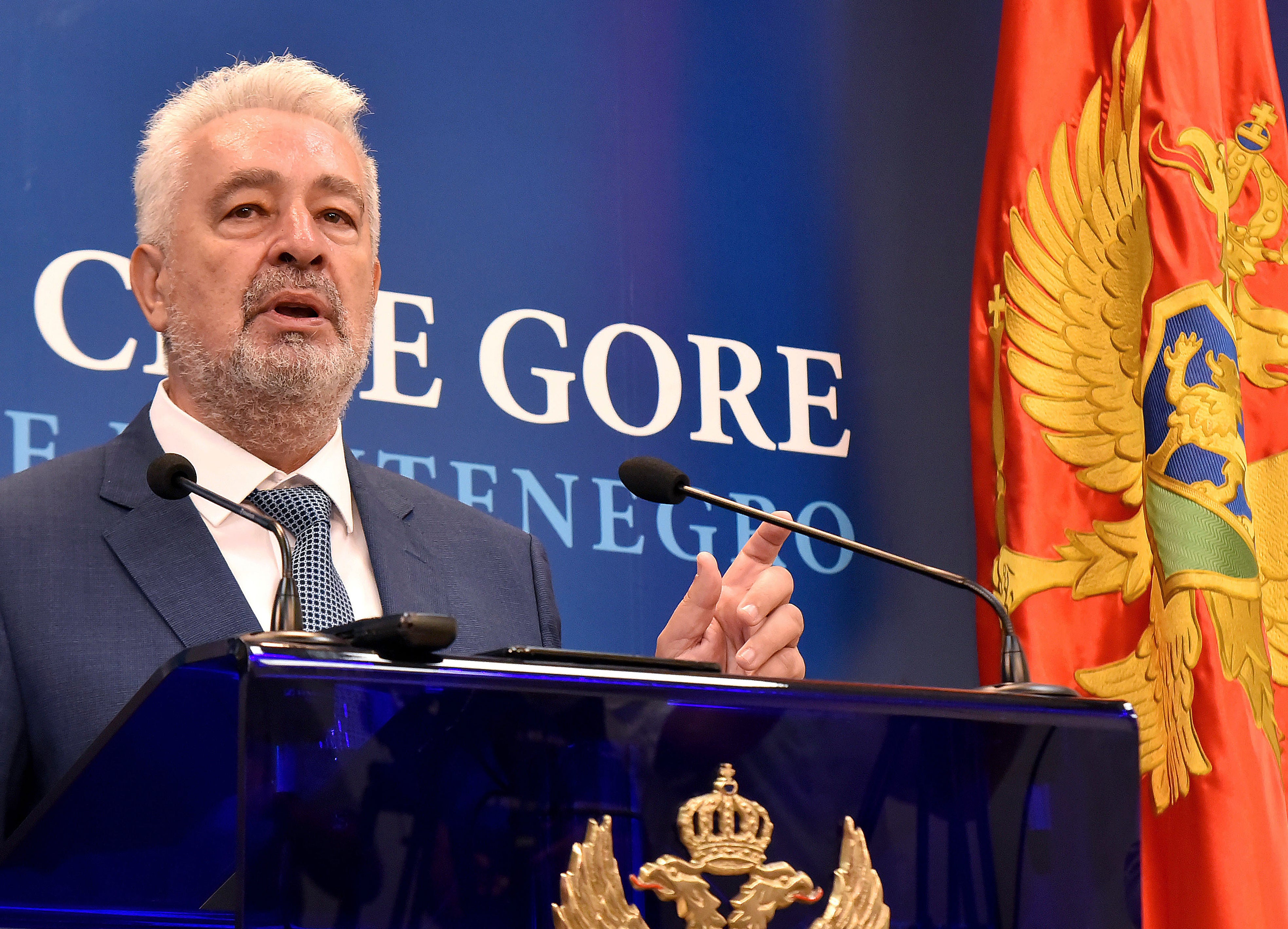Montenegro opposition leader proposed as new prime minister
Montenegro's president has proposed an opposition leader as the Balkan country’s new prime minister, paving the way for the end of his pro-Western party’s 30-year rule

Your support helps us to tell the story
From reproductive rights to climate change to Big Tech, The Independent is on the ground when the story is developing. Whether it's investigating the financials of Elon Musk's pro-Trump PAC or producing our latest documentary, 'The A Word', which shines a light on the American women fighting for reproductive rights, we know how important it is to parse out the facts from the messaging.
At such a critical moment in US history, we need reporters on the ground. Your donation allows us to keep sending journalists to speak to both sides of the story.
The Independent is trusted by Americans across the entire political spectrum. And unlike many other quality news outlets, we choose not to lock Americans out of our reporting and analysis with paywalls. We believe quality journalism should be available to everyone, paid for by those who can afford it.
Your support makes all the difference.Montenegro President Milo Djukanovic on Thursday proposed an opposition leader as the Balkan country’s new prime minister, paving the way for the end of his pro-Western party’s 30-year rule.
In accordance with his presidential duties, Djukanovic suggested to parliament that opposition leader Zdravko Krivokapic be the next premier. The announcement was made after Djukanovic met Krivokapic and two other opposition leaders for consultations.
Djukanovic’s Democratic Party of Socialists won the most votes in the country’s Aug. 30 parliamentary election, but a coalition of the three opposition parties together garnered 41 of the 81 seats in the assembly.
It was not clear when the parliament will meet to formally confirm the new prime minister.
Krivokapic, a 62-year-old university engineering professor who led the opposition For the Future of Montenegro in the election, is new in politics. He is an outspoken critic of Djukanovic and is considered close to the pro-Russian Serbian Orthodox Church and its leaders in Montenegro.
Krivokapic said after the meeting that the apparently smooth transition of power is another proof of “improved political culture" in Montenegro.
The small Adriatic Sea nation of 620,000 people has been a key Western ally in the Balkans under Djukanovic’s leadership. However, he and his party have faced allegations of rampant corruption and links to organized crime which they have repeatedly denied.
There have been fears that the new government could push Montenegro off its pro-Western course because it includes parties advocating closer ties with traditional allies Serbia and Russia. But leaders have pledged to strengthen ties with NATO and speed up the reforms needed to join the European Union.
Djukanovic and his DPS party led Montenegro to independence from Serbia in 2006 and into NATO in 2017, defying strong opposition from Russia. He still has three more years in power before new presidential election.
“In this election, we were not deciding about the future of our state. That was done 14 years ago," Djukanovic said at the meeting. “Therefore we should not allow that anyone jeopardizes our statehood."
The leaders of the three-party coalition have also pledged to change a disputed law on religious freedoms that sparked months of protests led by the influential Serbian Orthodox Church in Montenegro and gave the opposition a major boost ahead of the election.